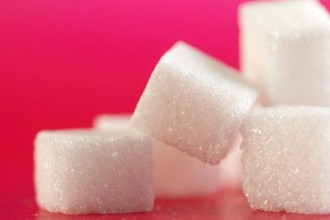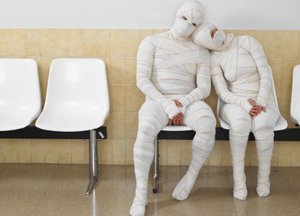Feeling tired all the time? It’s a common reaction to our non-stop, hectic lifestyles and may simply be the effect of stress, but it could also be caused by anaemia.
What is Anaemia?
The most common form of anaemia is anaemia due to iron deficiency. The body needs iron to produce red blood cells, specifically haemoglobin – a key part of blood responsible for the delivery of oxygen and other nutrients to your tissues, brain, muscles and organs. If you’re low in iron you can’t make enough red blood cells and with fewer red blood cells, your brain and body don’t get the levels of oxygen and other nutrients they need. It’s this lack of oxygen that can cause tiredness, exhaustion, heart palpitations, dizziness and possible fainting fits (the heart has to beat faster to get more oxygen around the body).
Who gets it and what causes it?
Those most at risk from iron deficiency anaemia are women of a child-bearing age, particularly teenage girls.
- Women; because they lose blood faster than their bodies can remake it, depleting their iron stores and a poor diet may also mean they are not absorbing enough iron through their food.
- Teenage girls are vulnerable because they are still growing while they are having periods. This means the iron in their bodies is being split between the growth and the blood loss, Also teenagers tend to eat badly. Pregnant women are also at risk as their bodies have an increased need for iron during times when large amounts of cell division are occurring. This particularly happens during pregnancy, fueling our need for more iron.
- Anaemia is also common in vegetarians. Experts estimate the rate of anaemia is twice as high in vegetarians as in meat eater. This is because red meat is the main source of dietary iron. If you cut meat out of your diet, you need to find that iron in other sources.
- Finally, iron deficiency anaemia could also be caused by a problem with your intestines. For example, if you suffer from Coeliac Disease – which means you cannot absorb the nutrients in wheat – you could also have problems absorbing iron properly.
Dietary strategy:
Anaemia can be caused by iron, B12 or folic acid deficiency. The good news is it can be easily cured by eating a balanced diet or taking an iron supplement. Two simple iron status tests you can do yourself involve your eyelids and fingernails. Gently pull down your lower eyelids– they should be a rich pinky red colour, not pale. Alternatively press on the end of your fingernail until your nail bed turns white – it should return to red quickly when you release it, not stay pale. A blood test can determine if you have deficiencies in iron, folic acid or B12. Increase your consumption of red meat, a good source of iron, as well as eggs, spinach and other green vegetables, lentils, prunes, dried apricots and pumpkin seeds. Vegetarians should note that only foods of animal origin contain vitamin B12 so supplementation is likely to be required.
Supplements:
- 2 x multivitamin and mineral
- 2 × Vitamin C 1,000mg
- 1 x Amino acid chelated iron 10mg http://www.solgar.com/SolgarProducts/Chelated-Solamins-Multimineral-Tablets.htm or for vegetarians and vegans http://www.devanutrition.com/multivitamin.html
Shani Shaker BA (hons) dipION, mBANT, CNHC, is a registered nutritional therapist with a focus on regenerative and functional nutrition, disordered eating, addiction and mental health. Based in London her services include one-to-one coaching, group classes and Skype sessions. Contact her at [email protected]
Disclaimer: The information provided is intended for your general knowledge only and is not a substitute for professional medical advice or treatment for specific medical conditions. Please consult your healthcare provider with any questions or concerns you may have regarding your condition. Supplementation should only be temporary. If you’re eating a nutrient-rich diet, extra supplementation should only last for a month or two, just long enough to resolve the deficiency.




